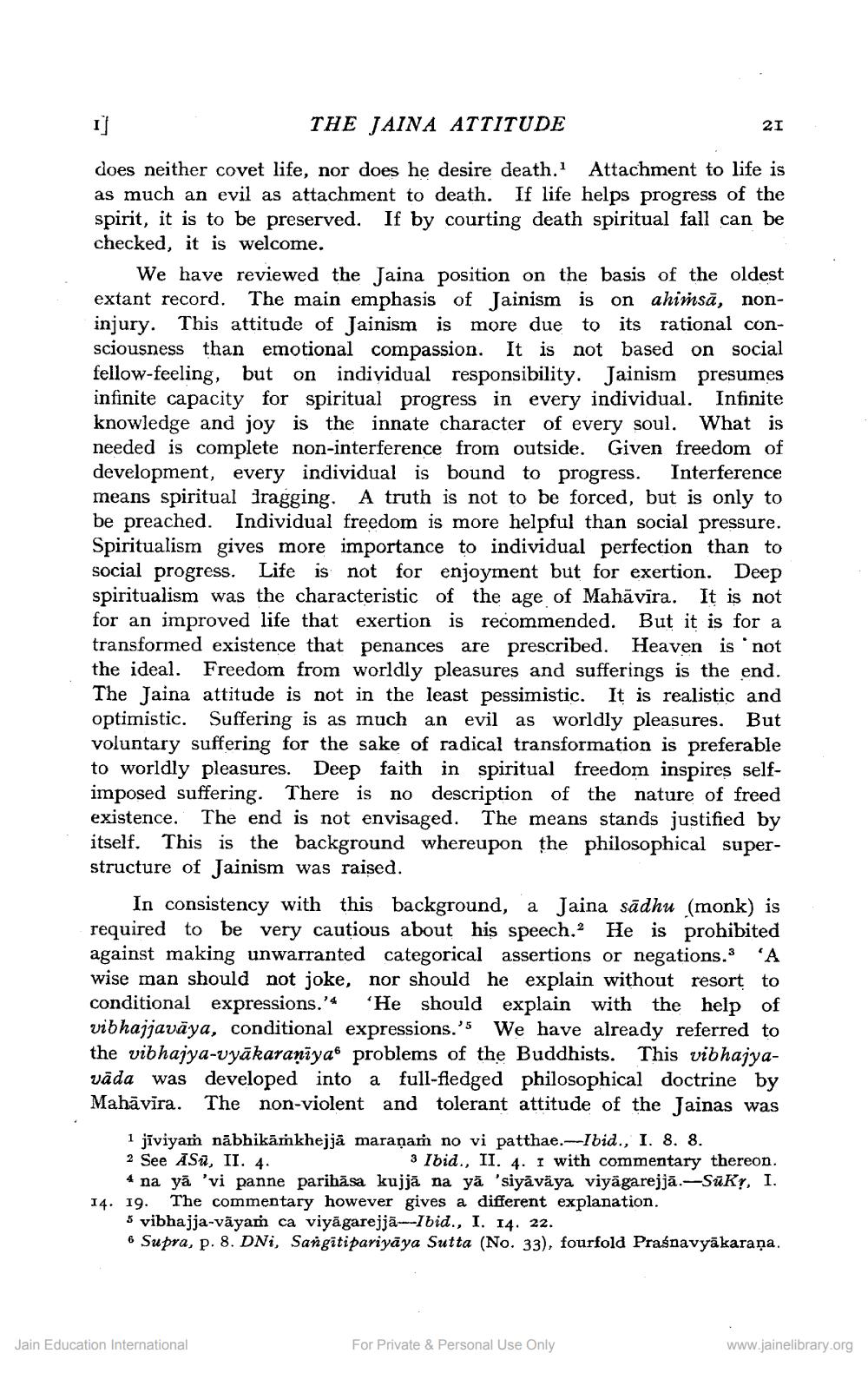________________
THE JAINA ATTITUDE
21
does neither covet life, nor does he desire death.Attachment to life is as much an evil as attachment to death. If life helps progress of the spirit, it is to be preserved. If by courting death spiritual fall can be checked, it is welcome.
We have reviewed the Jaina position on the basis of the oldest extant record. The main emphasis of Jainism is on ahimsă, noninjury. This attitude of Jainism is more due to its rational consciousness than emotional compassion. It is not based on social fellow-feeling, but on individual responsibility. Jainism presumes infinite capacity for spiritual progress in every individual. Infinite knowledge and joy is the innate character of every soul. What is needed is complete non-interference from outside. Given freedom of development, every individual is bound to progress. Interference means spiritual iragging. A truth is not to be forced, but is only to be preached. Individual freedom is more helpful than social pressure. Spiritualism gives more importance to individual perfection than to social progress. Life is not for enjoyment but for exertion. Deep spiritualism was the characteristic of the age of Mahāvīra. It is not for an improved life that exertion is recommended. But it is for a transformed existence that penances are prescribed. Heaven is 'not the ideal. Freedom from worldly pleasures and sufferings is the end. The Jaina attitude is not in the least pessimistic. It is realistic and optimistic. Suffering is as much an evil as worldly pleasures. But voluntary suffering for the sake of radical transformation is preferable to worldly pleasures. Deep faith in spiritual freedom inspires selfimposed suffering. There is no description of the nature of freed existence. The end is not envisaged. The means stands justified by itself. This is the background whereupon the philosophical superstructure of Jainism was raised.
In consistency with this background, a Jaina sādhu (monk) is required to be very cautious about his speech.2 He is prohibited against making unwarranted categorical assertions or negations.3 'A wise man should not joke, nor should he explain without resort to conditional expressions.' 'He should explain with the help of vibhajjavāya, conditional expressions.'s We have already referred to the vibhajya-vyākaraniyas problems of the Buddhists. This vibhajyavāda was developed into a full-fledged philosophical doctrine by Mahavira. The non-violent and tolerant attitude of the Jainas was
1 jīviyam nābhikāņkhejjā maraṇam no vi patthae.--Ibid., I. 8. 8. 2 See ASU, II. 4.
3 Ibid., II. 4. I with commentary thereon. 4 na yā 'vi panne paribāsa kujjā na ya 'siyāvāya viyāgarejjā.-Sūkļ, I. 19. The commentary however gives a different explanation. s vibhajja-vāyam ca viyägarejja--Ibid., I. 14. 22. 6 Supra, p. 8. DNi, Sangītipariyāya Sutta (No. 33), fourfold Praśnavyākaraṇa.
14.
Jain Education International
For Private & Personal Use Only
www.jainelibrary.org




